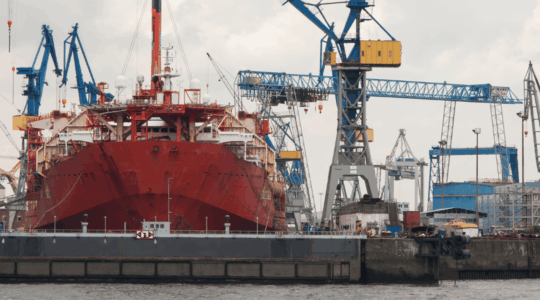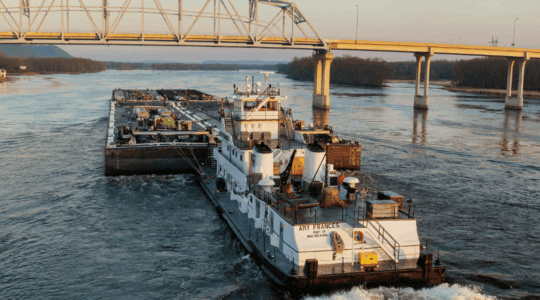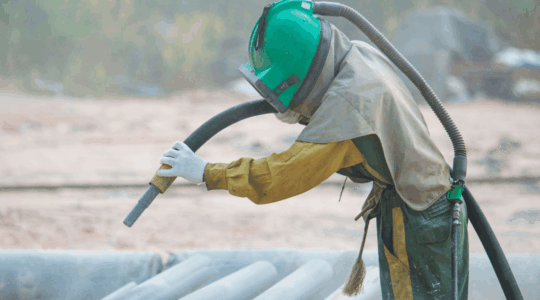Marine
Prioritizing Employee Safety: A Comprehensive Guide for Shipyard Operations
November 29, 2023
Within the dynamic world of shipyards, where cranes loom large and the rhythm of hammers echoes, one critical facet demands our unwavering attention: the safety of our valued workforce. In this blog post, we will explore the paramount importance of maintaining a safe shipyard environment and delve into actionable measures to ensure the well-being of your employees while enhancing operational efficiency.
The Foundation of Shipyard Success: Employee Safety
Shipyards are known for their bustling activity and potential hazards. From towering machinery to confined spaces, maintaining the safety of employees takes center stage. Beyond preventing accidents, a robust safety culture elevates productivity and fosters high morale among workers. After all, a safe worker is a confident and efficient worker.
Navigating the Waters of Safety Compliance
In the realm of shipyard operations, compliance with safety regulations is not up for debate. Maritime authorities set regulations to safeguard the lives and health of employees. Familiarizing yourself with OSHA standards and ensuring strict adherence within your shipyard is not just a legal obligation, it's a moral imperative. These regulations encompass vital aspects such as protective equipment, hazard communication, emergency response plans and more.
Why it matters: Compliance with safety regulations isn't just about avoiding penalties, it's about safeguarding lives and preserving the well-being of your workforce. It is the ethical foundation upon which a shipyard's success is built.
Equipping Your Crew: Proper Training
Training is the cornerstone of a safe shipyard. Providing your crew with comprehensive training that covers machinery operation, hazardous material handling and emergency response procedures is non-negotiable. Regular refresher courses are essential to keep employees informed and abreast of evolving safety practices.
Why it matters: Proper training not only reduces accidents but also instills confidence in your workforce. Well-trained employees are better equipped to handle challenges and respond effectively to emergencies.
Mitigating Risk: Identifying and Addressing Hazards
Conducting thorough risk assessments to pinpoint potential hazards across your shipyard is a proactive step. Address these hazards promptly by implementing engineering controls, enhancing signage, or establishing safe work procedures. Regular inspections ensure that safety measures remain effective over time.
Why it matters: Identifying and mitigating hazards preemptively is essential to create a safe working environment. It not only prevents accidents but also boosts overall operational efficiency.
Fostering a Culture of Safety
Safety is not just about rules and regulations, it's a mindset. Encourage open communication where employees feel safe reporting potential hazards or unsafe practices. Recognize and reward individuals who actively contribute to a safer work environment. A collective commitment to safety fosters a culture where everyone watches out for each other.
Why it matters: A culture of safety empowers employees to actively participate in their own well-being. It creates a workplace where safety isn't just a rule but a shared responsibility.
Reaping the Benefits: The Positive Impact of Employee Safety
Investing in employee safety yields numerous benefits. A safe environment results in fewer accidents, reduced downtime, and improved productivity. Morale and job satisfaction soar, leading to higher employee retention rates. Ultimately, a safe shipyard is a more successful one.
Why it matters: Prioritizing employee safety isn't just a regulatory requirement, it's an investment in the longevity and prosperity of your shipyard.
Contact Me for Expert Safety Insights
If you're seeking to elevate your shipyard's safety standards, I'm here to assist. With years of experience in maritime safety and risk management, I offer tailored insights and strategies to enhance employee well-being while maximizing operational efficiency. Reach out to me for a consultation, and together we can take significant steps toward a safer and more successful shipyard.
The above information does not constitute advice. Always contact your insurance broker or trusted advisor for insurance-related questions.
Related Insights

Beyond the Balance Sheet: Making Marine Insurance a Competitive Advantage in 2026
March 4, 2026

Cyber Risk Below Deck: Protecting Shipyards and Vessel Operators from Digital Threats
November 25, 2025

Dust in the Details: Managing Silicosis Risk in Shipyard Operations
October 23, 2025